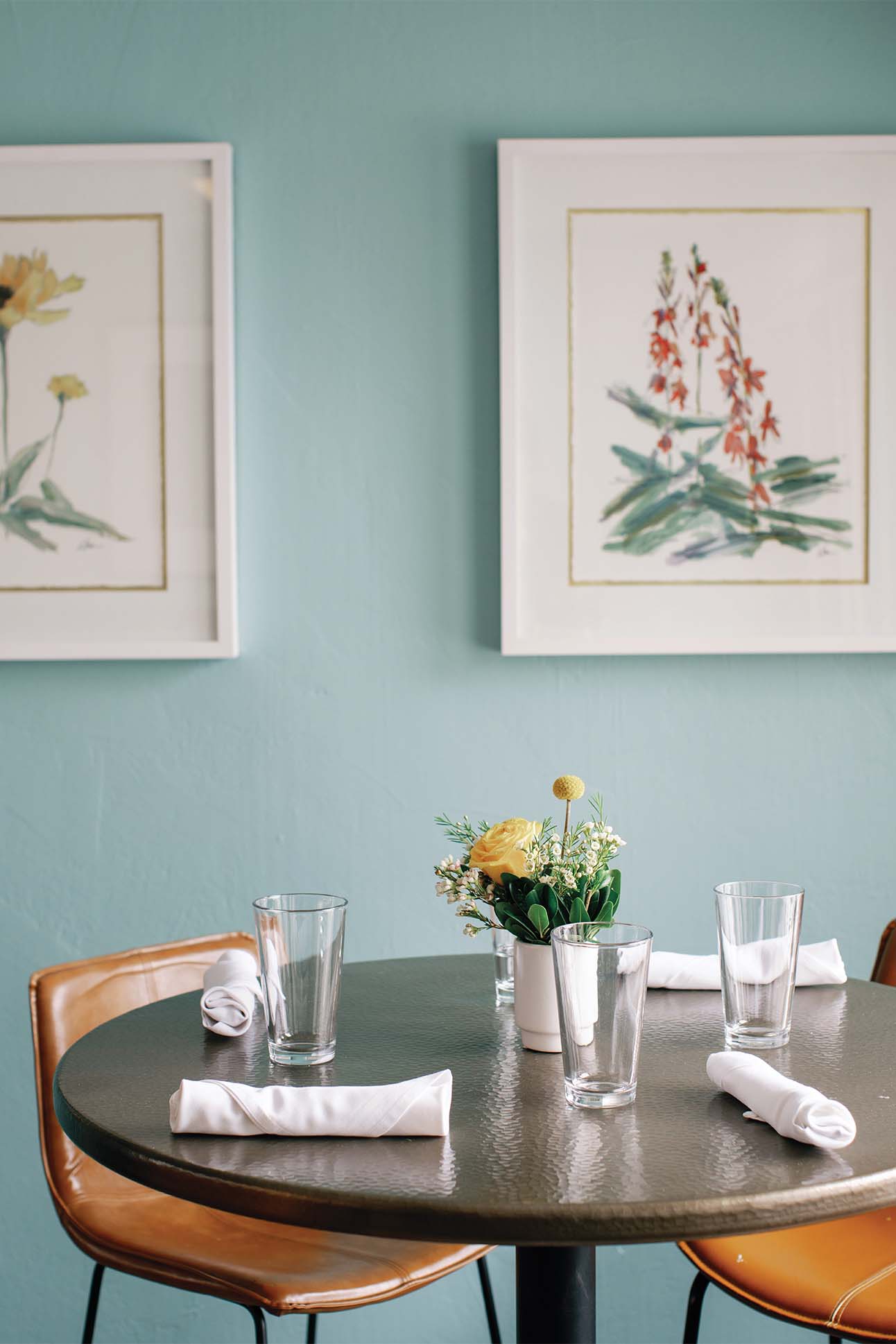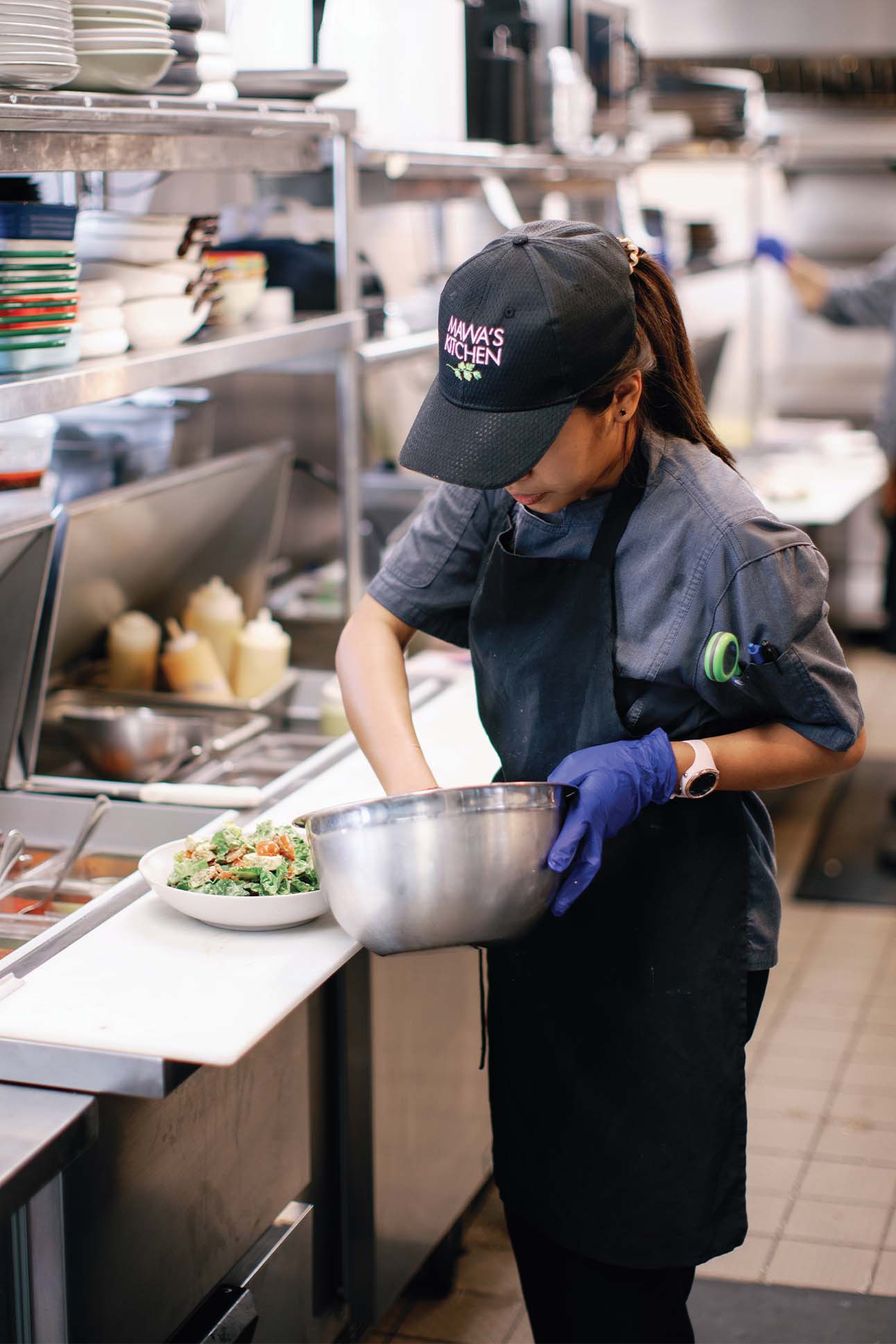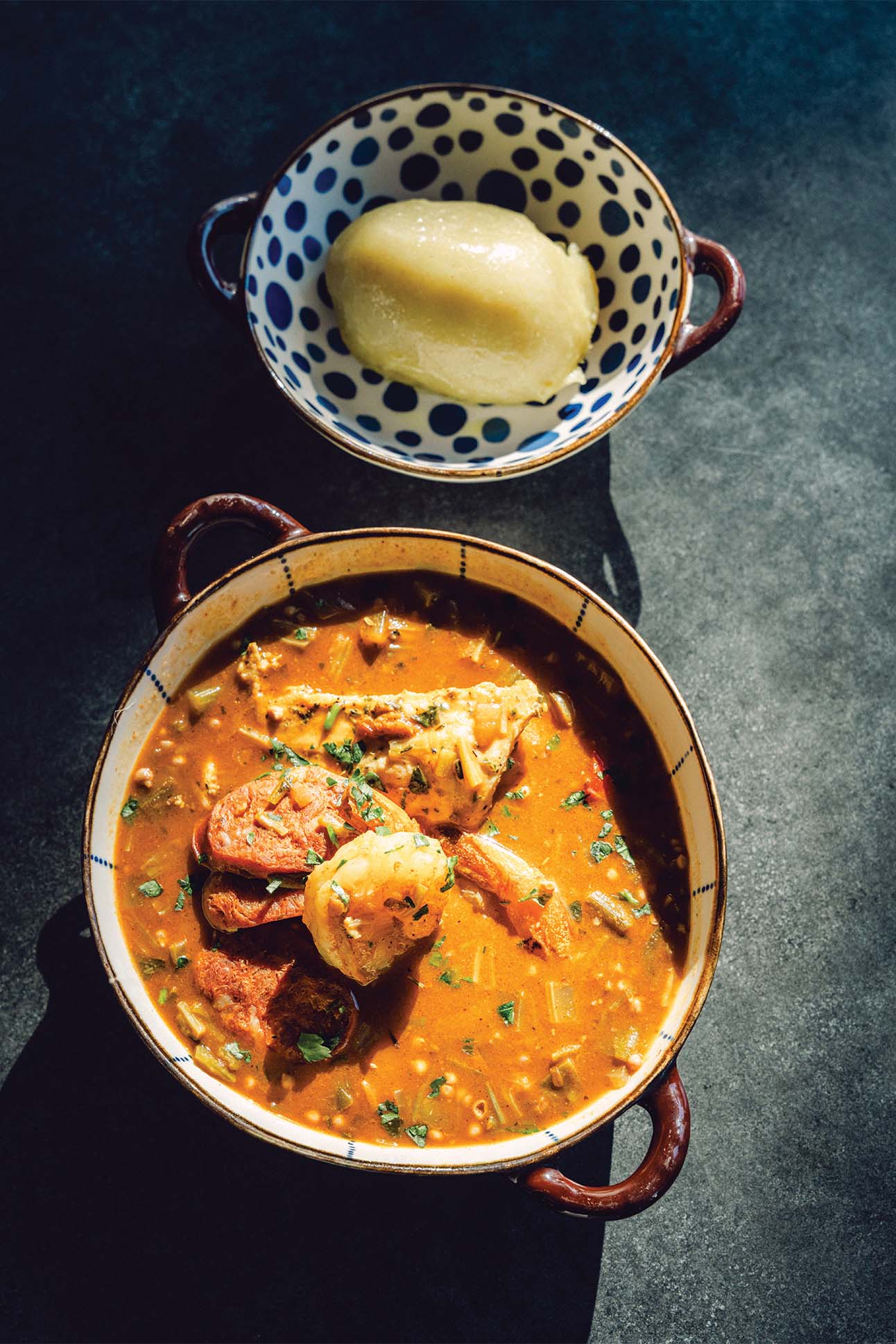By Amanda M. Faison
Photography by Trevor Triano
Everyone has an Aspen origin story. Most folks find their way to town for a ski trip or a ski season. Others discover the magic of an Aspen summer and never leave. Mawa McQueen’s introduction was different.
She first learned of Aspen as a young girl living in an impoverished Paris neighborhood, while watching an episode of The Young and the Restless in which the ruthless villain Victor Newman flew his glamorous girlfriend to the mountain town for a getaway. McQueen filed away the idea of Aspen—presumably under “fabulous faraway places I’ll never go”—and largely forgot about it.
That is, until one summer when she was waiting tables at a Relais & Châteaux resort in Kennebunkport, Maine. As the season came to a close, her manager asked where she would like to go for the winter season. “As a joke, I said I wanted to go to Aspen—to be like the rich people,” she says with a laugh. The next day, her manager called The Little Nell (also a Relais & Châteaux property) and arranged for McQueen to work at the hotel’s restaurant.
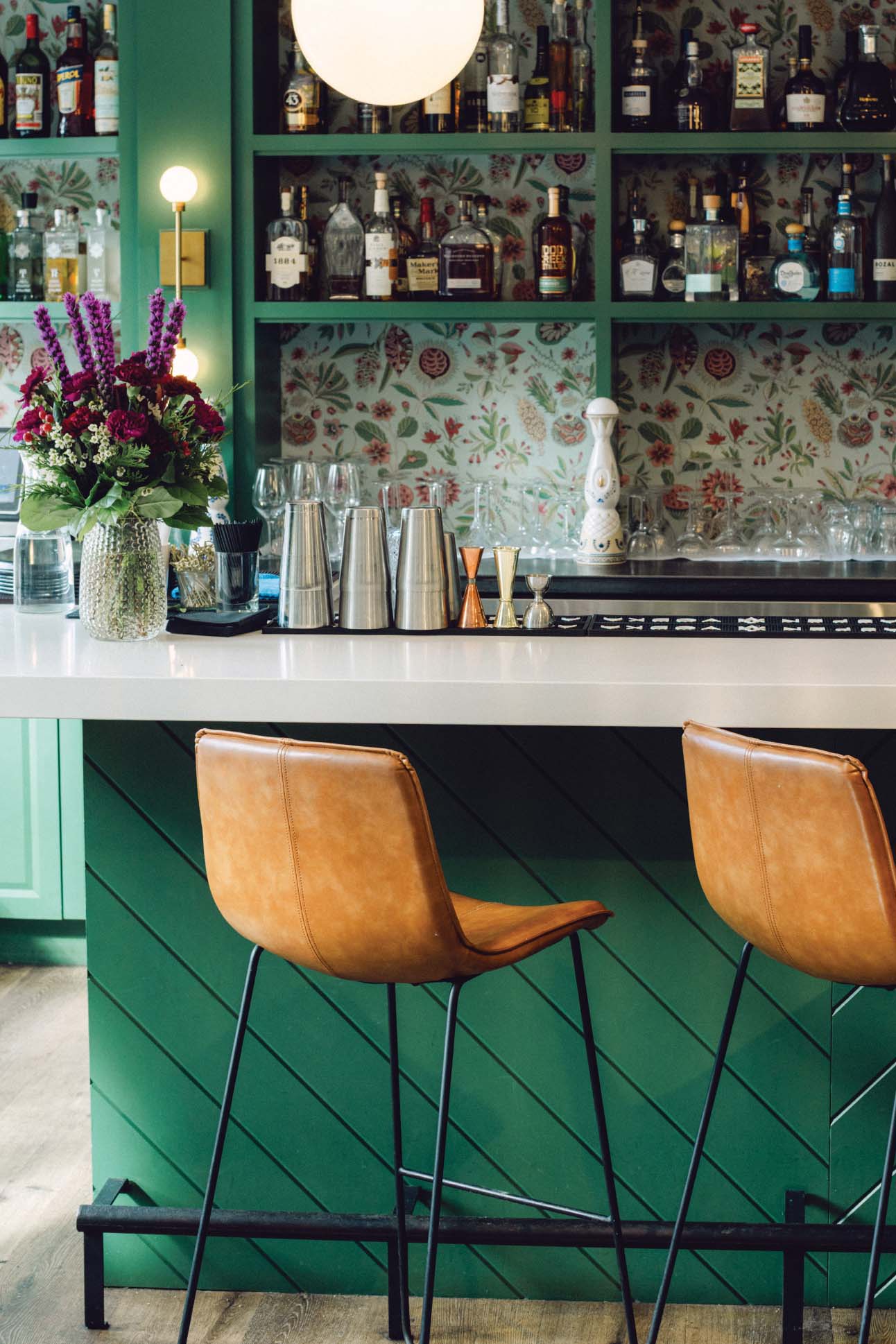
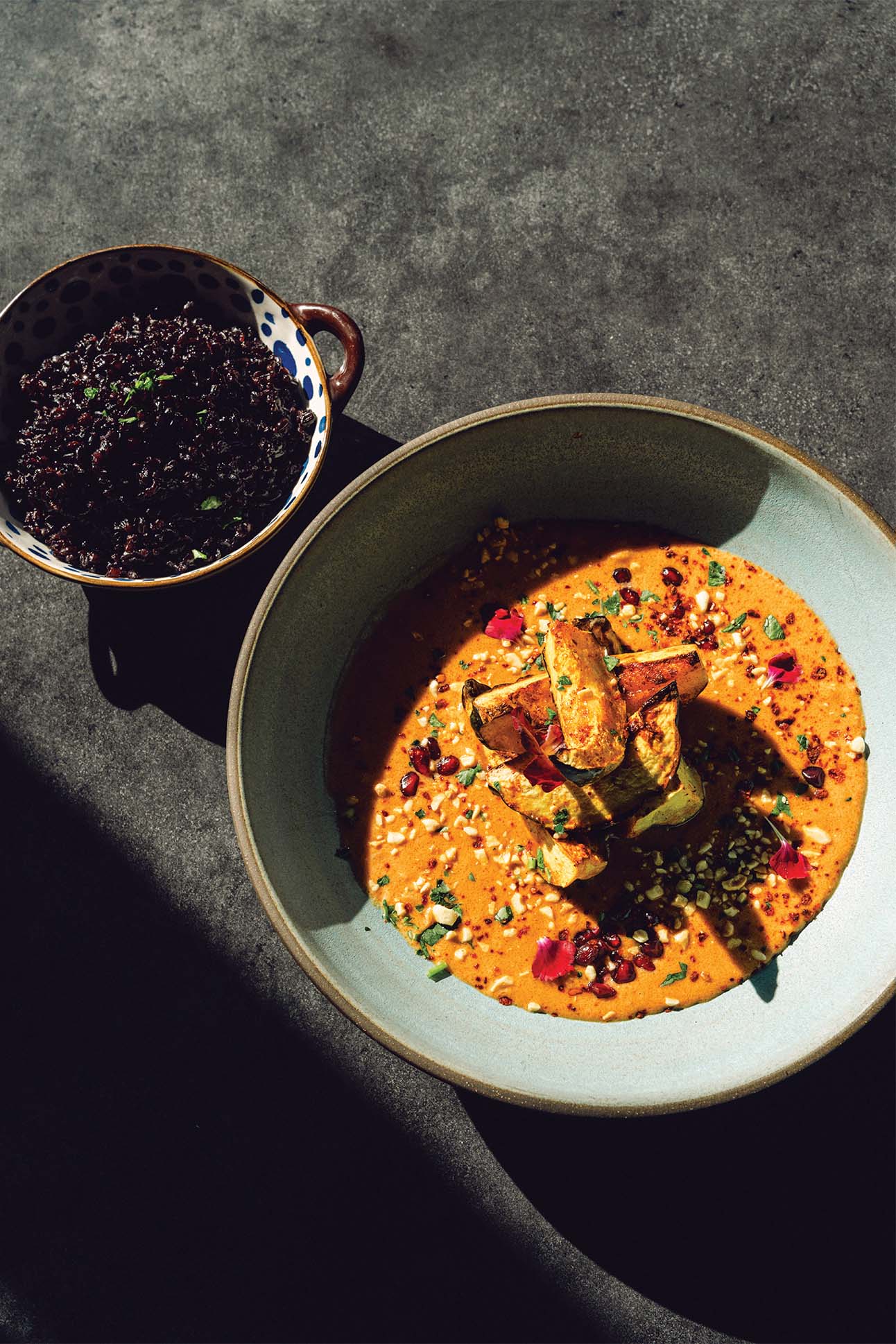
For the next five years, McQueen spent summers in Maine and winters in Aspen, until one fateful year, as ski season came to a close, she decided, like so many before her, to stay for good. The bold move was spurred by a budding local catering business—and a rekindled desire for culinary greatness.
McQueen was already a trained chef. A culinary education had been her ticket out of the rundown Paris neighborhood where her family had settled after emigrating from the Ivory Coast when she was 13. “What I realized is that no one was coming to save me,” she says. “I had 20 brothers and sisters, I barely spoke French, and at 17, I realized I was ‘illegal’ in France.”
America was the place to be, she decided after watching countless episodes of popular TV shows from across the Atlantic. She attended culinary school at École Hôtelière de Saint-Quentin en Yvelines, then arrived stateside determined to make her mark.
That she finally found this success in Aspen felt like destiny—something written in the stars, if not a soap opera script.
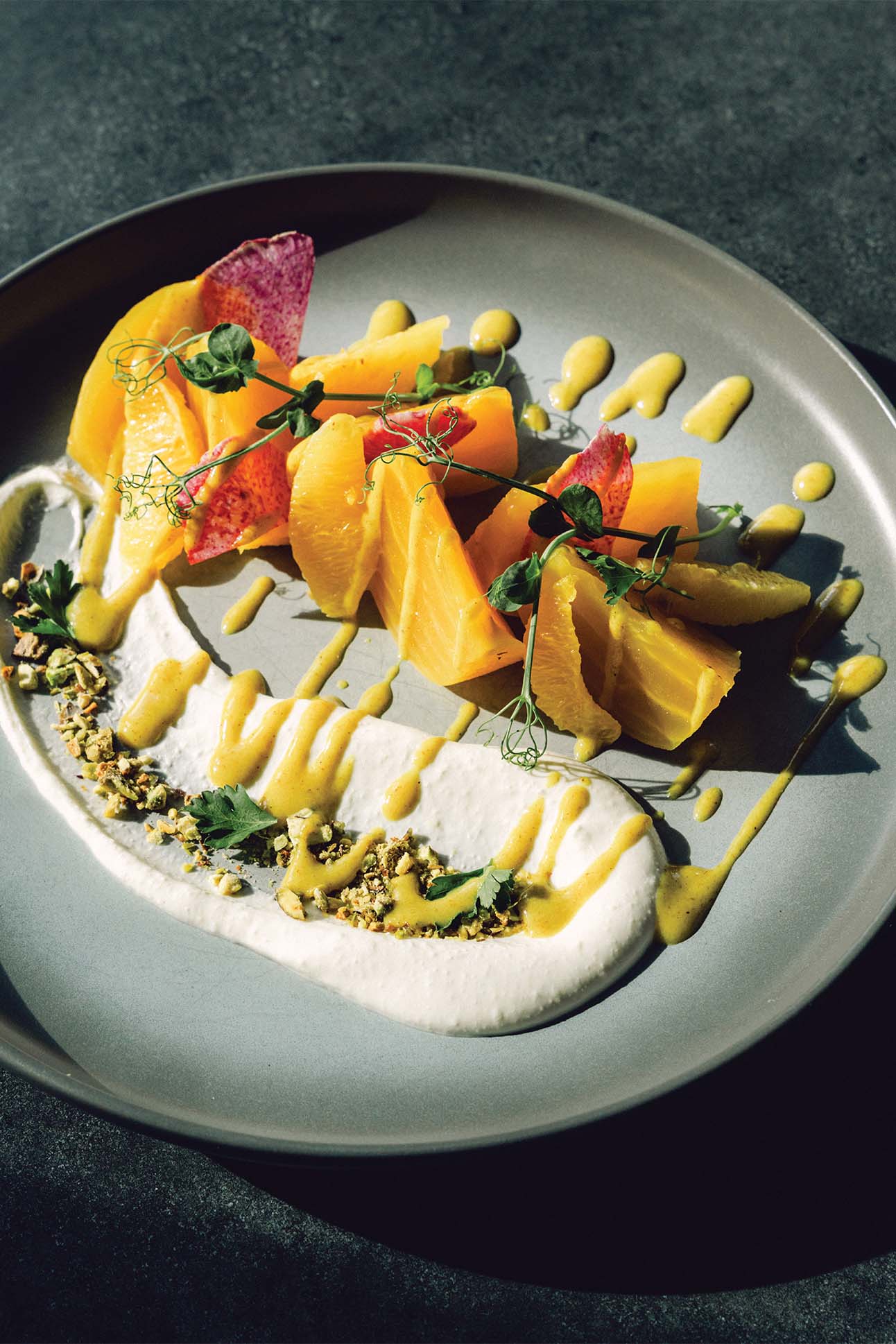
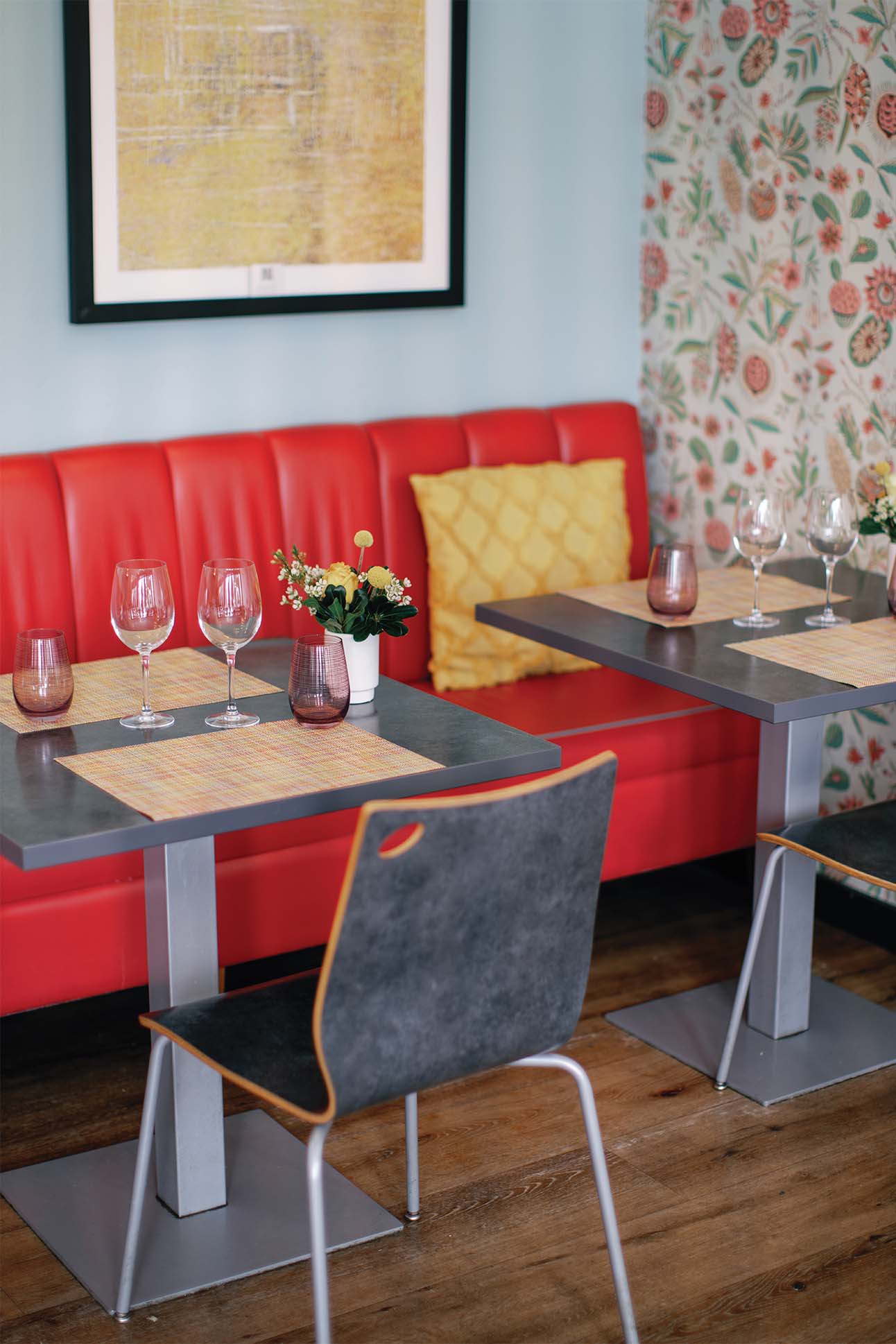
In 2012, she opened her first restaurant, Mawa’s Kitchen, in the Aspen Airport Business Center. It was a risky endeavor—“trying to get people past the roundabout is impossible,” she says—and for a while, it didn’t pay off. That is, until 2020, when, inspired by the Black Lives Matter movement, she resolved to pivot from New American cuisine to her own native flavors.
“I asked myself ‘Mawa, what do you want to eat? What is your comfort? Who are you?’” McQueen says. “I wasn’t being true to myself. You couldn’t see my French influence or my African or Middle Eastern influences.” Old menus were abandoned, and new dishes—ones that spoke to the true Mawa—were created, inspired by her native Ivory Coast and Paris, as well as the multicultural neighbors from Morocco, Tunisia, Algeria, and the Middle East that she grew up with. The result: an international menu where dishes like tagine and West African peanut curry live alongside oxtail bourguignon and potato mousseline.
Her new menu didn’t just lure diners past the roundabout; in 2022, it earned her a James Beard Award nomination for Best Chef: Mountain. She was grocery shopping when she got the news and dissolved into tears, she says.
The nomination was more than a reward for her hard-scrabble efforts; it was also a launchpad for a burgeoning culinary empire. Within months, she had opened Mawita in Snowmass, a restaurant that explores the complementary flavors of African and Latin American cuisines. “It’s the same ingredients—plantain, corn, yucca, onion, rice,” she says. “We are more alike than you think, especially when it comes to food.”
Next, she opened her fast-casual restaurant The Crepe Shack, an homage to her Parisian upbringing. “Having a crepe is like seeing someone you like for the first time,” she says. “It’s like bubbles inside of you.” She has also recently self-published a cookbook, Mawa’s Way, and a motivational self-help book, Unstoppable Ambition.
It was the latter, coupled with a documentary about her life that aired last year on French television, that recently took her back to Paris. There, she visited the neighborhood where she had grown up feeling aimless and invisible. But this time, she saw it with new hope, through the eyes of someone who now knows that dreams aren’t just for The Young and the Restless. “I went there to empower the youth,” she says of those growing up in her former home, many who no doubt reminded her of a young Mawa. “They don’t see success for themselves—they think it’s never going to happen. But I say it can happen.”



